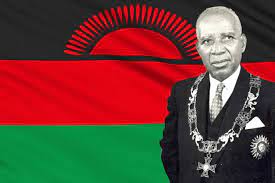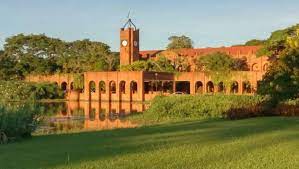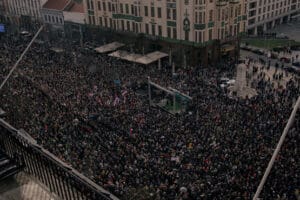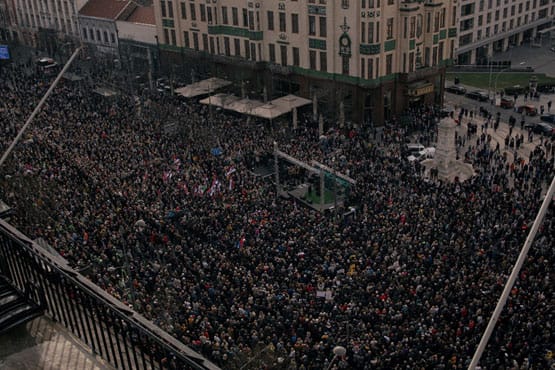
By Janet Karim
Racism is an adult disease and parents should stop spreading it through their children. – US civil rights advocate Ruby Bridges who was the first African American to attend an all-white school in segregated education system in southern USA
Children are the spitting image of who we (parents and other adults) demonstrate. We must take care of how we play life out in front or even behind them. Put on the best presentation of your life for them. Their future depends on the drama you parade in front of them. Janet Karim, 01.23.2034: theme for forthcoming book entitled Dear God, are You still there?


Let us face facts, let us get real, and let us properly recollect our history when we consider the third national resolution: one of the many prized jewels, former President H.Kamuzu Banda, left the country was the love for education. What to do about education was part of the famous three Gweru dreams of jailed nationalist Hastings Kamuzu Banda. Through the dream, Kamuzu recounted (as was his nature – if you forgot anything, he was always quick to remind you through his “as I have said many times before…..”) the dreams, among them University in Zomba (also recounted through Mbumba music “University kuZomba chifukwa cha aNgwazi, cheKamuzu!” Translation: University in Zomba because of the Ngwazi, Ngwazi!). Somewhere along the route to 2024 (our 60th anniversary of Independence, the country took a left turn, and many of the established items in the education bucket got thrown out, altered, or replaced. Oh Malawi! My Malawi!
During the 39 years that I knew Kamuzu, looking at his varied degrees (history, medicine, he may even have done some law, classical studies), I saw him as a Jack of all trades and Master of all trades. One had to learn how to fry an egg (sunny side up please!) and make coffee at the same time. Thus during his administration, some have called it the reign of terror (the European Reign of Terror was few thousand degrees higher than the Malawian one – another day), systems were established among them a heavily well-planned education system: primary education (later added the segment M’mela M’poyamba, equivalent of Nursery/Pre-School School), secondary school, and the tertiary school. Then there came the Kamuzu Academy with Latin, Classics, and music.


Outside the formal schooling, through population growth (2 million t0 current 21m), the government set up other schooling opportunities. Among these were the Government upgrading school in Mpemba, augmented by the Malawi Institute of Management, Women’s Magomero Training Centre, and the Malawi Young Pioneer Leadership Training Bases. There were also agricultural training activities, through links with the Republic of Taiwan.
A major boon to the learning process was the presence of the Malawi Book Service that secured books for learning on the international and local markets, making them easily accessible to learners country wide. Thanks to the Malawi Privatization Programme, the World Bank, and its cousin IMF) the MBS died at the dawn of democratic governance in 1995.
The 2024 tertiary education resolution is a plea for the country to introduce the Malawi Diplomatic Academy (MDA) to be coordinated by the Ministry of Foreign Affairs, MIM, Mpemba Staff Training College, Ministry of Education, and the Human Resource Department. These departments will coordinate who the resource persons are, and provide space for the training of diplomats.
Before moving further into the deep pockets of the MDA, it must be borne in every person’s mind reading this article that every person who goes outside the country, speaks on behalf of Malawi or in a capacity to work with someone who is the representative, IS A DIPLOMAT.
It goes without saying, this fold of the diplomatic corps also envelopes the private sector. Although training for this group will not be as intense or lengthy as the frontline diplomats those people known as ambassadors, first secretaries, and attaches, the brief training in diplomacy is vital because whether sent by the government or a private company, immediately a delegate introduces himself or herself as a Malawian, his or her post as a diplomat is automated. All and anything you do or say will be thrown into the bag labeled “The Malawian delegate Did/Said This or That).
The Academy for diplomacy is self-sustaining and in fact could earn some income for the MOFA and the facilitators. Malawi has been sending diplomats since 1964; while the diplomats from then are not around, the ones that went abroad afterwards are here and can provide helpful facilitations for the MDA. Courses can be from three weeks (persons on the VIP or VVIP entourage), three months, six months, one year, and up to a two-year Masters Course. The MA is for the people that want to secure positions as career diplomats. These in between for various sessions and specializations like trade negotiations, health considerations. Malawians traveling outside the country on behalf of government or private companies or NGOs are all prospective clients of the MDA.
Can all the parliamentary drifters please get into Draft Mode and start drafting such a school into being please?
I am a product of the Banda Administration and his education for national development policy. I soaked in rain, heat and everything in between, listening to the voice of Malawi’s lone Mentor-in-Chief, who also was our President. I once listened to him drone and wax lyrical about Cicero (an Ancient Roman statesman, lawyer, scholar, and writer) during one of his Chichewa Public Lectures. I don’t remember anything being said by Kamuzu in Chichewa; everything he said was in English (with Tembo translating in Chichewa). I went to my dormitory at Chancellor College (current University of Malawi), did a little research (three books), wrote a paper for history, and got a distinction.
I told my friends I was going to pay more attention to Kamuzu. Before he was just a dictator who got rid of his challengers (they were not his enemies; they challenged him, THEN they became enemies), made harsh rules, caused me to almost make my children miss the thrill of holding a baby crocodile art Vic Falls (Kamuzu’s “I’ll make you meat for crocodiles” statement on my mind), and other Kamuzu things. When he flew into the past to dig up Chewa, Ngoni, ancient West African, global histories, he always helped me excel in writing my university courses.
Various changes to our tertiary education are mind boggling:
1. Make primary school students learn in their vernacular. NO
2. Bring Malawi Book Service back. YES
3. CHANGE OF Polytechnic to Malawi University of Business and Applied Sciences. NO because of the acronym MUBAS.
4. Change MUBAS at Malawi Polytechnics and Business University MAPOBU. YES
5. Introduce the MOFA Malawi Diplomatic Academy. YES
Malawi at 60 years of independence and 30 of democratic governance, must leap into the next levels of development. The foundations were laid. If you did not know, now you know!


